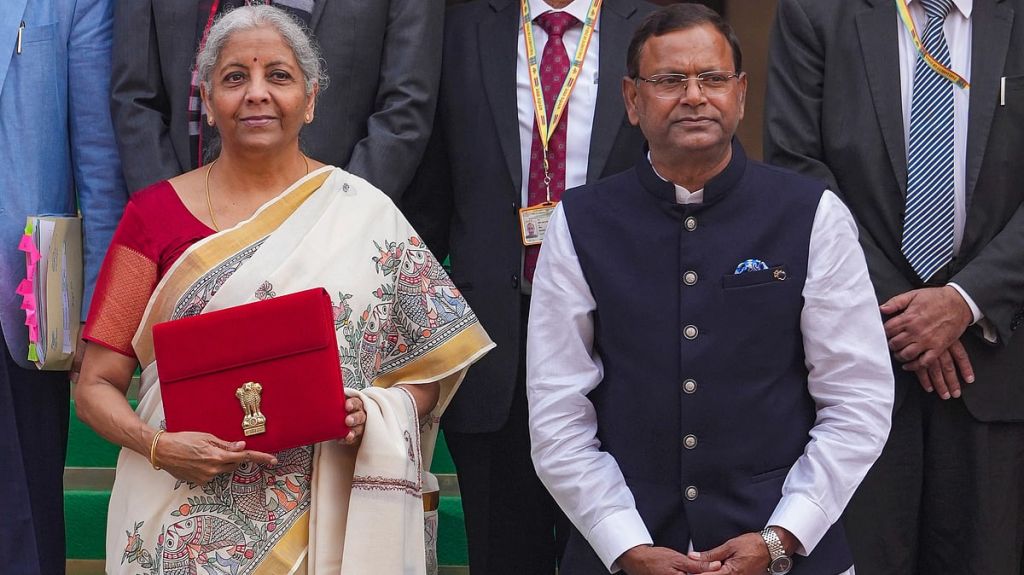
The Union Budget 2025, presented by Finance Minister Nirmala Sitharaman on Saturday, has placed a strong emphasis on private sector research and development (R&D), skill enhancement, and expanding higher education. While the increase in investment in key education sectors has been welcomed by the experts, they also stressed that quality must take precedence over mere expansion.
Speaking about the Rs20,000 crore allocation for private sector R&D, Prof Abhijit Majumder of the Indian Institute of Technology (IIT) Bombay told the Free Press Journal, “if there is a clause in the budget that encourages industry to collaborate with academia to carry out research and invest in R&D, the move could prove to be a game changer.” He added that fostering industry-academia partnerships could significantly boost India’s technological innovation and global competitiveness.
The budget also proposes an increase of 10,000 medical seats in the coming year and a total of 75,000 additional seats over the next five years. However, concerns have been raised over the lack of adequate infrastructure and faculty to support this expansion.
Sudha Shenoy, a medical education counsellor from Mumbai, criticised the move, questioning whether the government had opened a factory to mass-produce medical graduates. “There is already a severe shortage of infrastructure in newly opened colleges, with no hostel facilities forcing students to spend heavily on private accommodation. There was also a significant shortage of teaching staff not only in Maharashtra but across the country,” she told the FPJ.
She further argued that the existing quality of education in a number of medical colleges was substandard and the government’s focus remained on increasing numbers rather than ensuring excellence. She urged policymakers to adopt a quality-driven approach, warning that without it, a large number of “poorly trained doctors would enter the healthcare sector” in the coming years, “which could be disastrous for the country”.
Echoing similar concerns, Brijesh Sutaria, a Mumbai-based medical education activist, pointed out that merely increasing seats without strategic planning would not yield positive results. He said robust infrastructure, skilled faculty, fully equipped teaching and treatment departments, fee regulation for private and deemed universities, reassessment of caste-based reservations in postgraduate studies, and standard operating procedures to ensure adequate clinical exposure in private institutions were all necessary to balance the need for expansion with quality education. Without addressing these issues, he warned that the move would not be effective in strengthening India’s healthcare system.
Higher education has also received significant funding, with an emphasis on expanding IITs, particularly those established after 2014, with IIT Patna receiving a major infrastructural boost. While experts believe this will improve access to premier institutions, they caution that faculty shortages and research funding must not be overlooked.
The budget has also prioritised artificial intelligence (AI) and digital skilling, with ₹500 crore allocated to establish a Centre for Excellence in AI in Education. Tom Joseph, co-founder of USDC Global, said the allocation underscored the growing role of technology in modern education, making learning more effective and accessible. Five National Centres of Excellence for Skilling will also be established to provide industry-relevant expertise, a move welcomed by educationists.
Dr Anunaya Chaubey, provost of Anant National University in Gujarat, described the introduction of broadband in all government secondary schools as a major step towards bridging the digital divide. He said the Centre for Excellence in AI in Education would encourage collaboration between industry and higher education institutions, leading to scalable solutions across sectors.
The budget has also removed Tax Collected at Source on education-related remittances through loans, a move that has been viewed positively by the international education sector. Abhijit Zaveri, founder and director of Career Mosaic, an education consultancy agency, said this would encourage more students to pursue world-class education while strengthening India’s position as a global knowledge hub.
Professor VN Rajasekharan Pillai, vice-chancellor of Somaiya Vidyavihar University, lauded the government’s commitment to research, particularly the provision of 10,000 fellowships under the Prime Minister Research Fellowship Scheme for full-time research scholars at IITs and the Indian Institute of Science.
While the budget has been praised for its focus on education, skill development, and research, experts emphasise that its success will depend on proper execution. Economist Arnab Deb from International Management Institute New Delhi said the budget was a strong push for human capital enhancement but cautioned that implementation would be key in determining its impact.